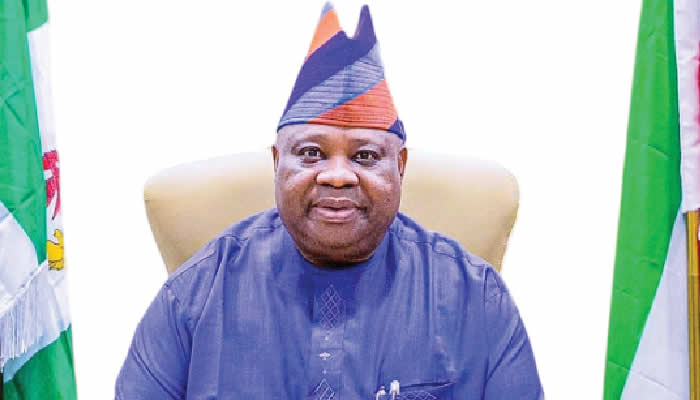The political landscape in Osun State, Nigeria, is heating up as the 2026 governorship election approaches. The current governor, Ademola Adeleke, and his administration are facing criticism from the opposition All Progressives Congress (APC), particularly regarding comments made by the former Speaker of the House of Assembly, Timothy Owoeye. Owoeye allegedly referred to Adeleke as a “caretaker governor,” a remark that has sparked a war of words between the two parties. Olawale Rasheed, spokesperson for Governor Adeleke, demanded a public apology from Owoeye, arguing that the statement disrespected the governor’s legitimate election and the judicial process that affirmed his victory. Rasheed further emphasized that the people of Osun are discerning and recognize the positive impact of Adeleke’s administration, contrasting it with previous governments.
The Osun APC, however, has defended Owoeye’s statement, claiming it was misinterpreted. According to the party’s spokesperson, Kola Olabisi, Owoeye’s comment simply meant that the APC intends to democratically unseat Adeleke in the next election. Olabisi argued that the governor’s spokesperson’s reaction is indicative of anxiety and fear within the ruling party. He stressed that the APC is confident in its ability to reclaim power in 2026. The disagreement over Owoeye’s statement has laid bare the underlying tensions between the two major political forces in the state.
The debate has also extended to the role of President Bola Tinubu, a prominent figure in the APC, in the upcoming election. Rasheed confidently asserted that Tinubu, being a democrat, would not interfere in the Osun election or support any form of rigging. This statement aims to portray Adeleke’s government as confident in its popularity and legitimacy. It also seeks to distance the national political landscape from local dynamics, presenting the upcoming election as a contest solely within Osun State. This stance suggests that Adeleke’s camp believes they can win based on their performance and the support of the people, without external influence.
Olabisi, on the other hand, countered Rasheed’s claim, stating that Tinubu’s support for the Osun APC is inevitable, given his position as the party’s leader. He emphasized that Osun State is part of Tinubu’s political constituency and that the president would naturally be invested in the party’s success in the state. This perspective highlights the importance of national party affiliations and the potential influence of national leaders in state-level politics. It suggests that the APC believes Tinubu’s support will be crucial for their victory in 2026.
The exchange between the two parties reveals a fundamental difference in their approaches to the forthcoming election. Adeleke’s camp projects an image of self-reliance, claiming to be unconcerned with Tinubu’s influence and emphasizing their confidence in the people’s support. The APC, conversely, highlights the importance of party unity and the potential benefits of having the president’s backing. This divergence in strategies underscores the complex interplay between local and national politics and sets the stage for an intriguing contest in 2026.
Ultimately, the 2026 Osun governorship election promises to be a closely watched affair. The ongoing war of words between the ruling party and the opposition, exacerbated by Owoeye’s controversial statement, serves as an early indicator of the intensity of the upcoming campaign. The differing perspectives on Tinubu’s potential role further add to the intrigue. As both sides prepare for the electoral battle, the people of Osun State will be the ultimate arbiters, deciding whether to maintain the current course or usher in a new era of governance. The outcome will undoubtedly have significant implications for the political landscape of the state and, potentially, the nation.














